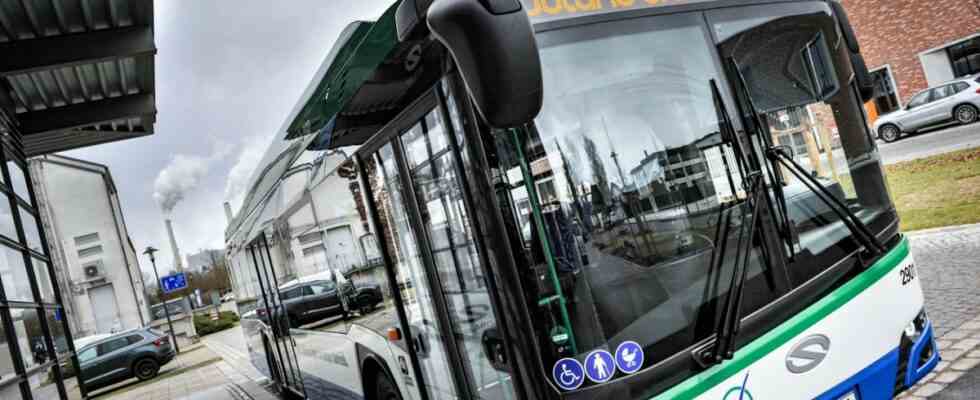The problem begins at the final stop, when not even the most urgent human needs can be dealt with with dignity. There are no sanitary facilities for bus drivers to go to the toilet during working hours at almost 80 regional bus stops or junctions in the Munich district. Last but not least, the Greens and Free Voters in the Munich district council identified this grievance as one of the reasons why the shortage of skilled workers in local public transport and especially among bus drivers is increasing. With two independent applications, the two parties want to bring about better hygiene and social standards in the district of Munich – but it’s not that easy.
At the most recent meeting of the district council’s mobility committee, Christoph Nadler, leader of the Greens parliamentary group, pointed out that this “huge problem” was repeatedly pointed out to him. He also made the municipalities responsible for the design of the stops responsible. “The communities must also have an interest in the problem being solved,” said Nadler, pointing out that for months it has only been possible to run on several lines in emergency mode because there were simply no drivers.
There was and is emergency operation on 16 lines in the district
In fact, the district – also driven by the corona pandemic – had to reduce the offer to 16 lines in phases and still not all bus lines can be operated at full capacity. District Administrator Christoph Göbel (CSU) agreed with Nadler and said that the problem was not new and that both the administration in the district office and the Munich Transport and Tariff Association (MVV) had the topic on their screens. His authority therefore also held a survey among all 29 cities and municipalities to find out at which stops the most urgent need for action existed. And of course, according to Göbel, the district is dependent on the cooperation of the municipalities, after all, they have the planning authority for the construction or conversion of sanitary facilities. Citizens would also benefit from publicly accessible and, above all, clean toilets at terminal stops and connection points in the bus system.
Göbel also pointed out that the MVV is currently having an expert report drawn up for the entire network area in order to shed light on the issue of the shortage of skilled workers in all its facets. Its results should now be awaited. Otto Bußjäger from the Free Voters also made it clear that it is not only due to a lack of sanitary facilities in order to be able to retain staff or recruit new specialists. It is also about fair payment in order to be able to afford the high cost of living in the district. There are two districts in the Free State that pay the bus drivers who work there higher allowances, he said. “We should also set standards for payment,” said the FW district council, which also appealed to bus operators and called for higher standards at their depots. “No bus driver wants to dig out his bus when it’s minus five degrees because he can’t park it properly in the depot.”
Göbel contradicted the demand for regional subsidies beyond the tariff. This would only be possible if the district had its own operation like the state capital.

